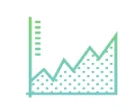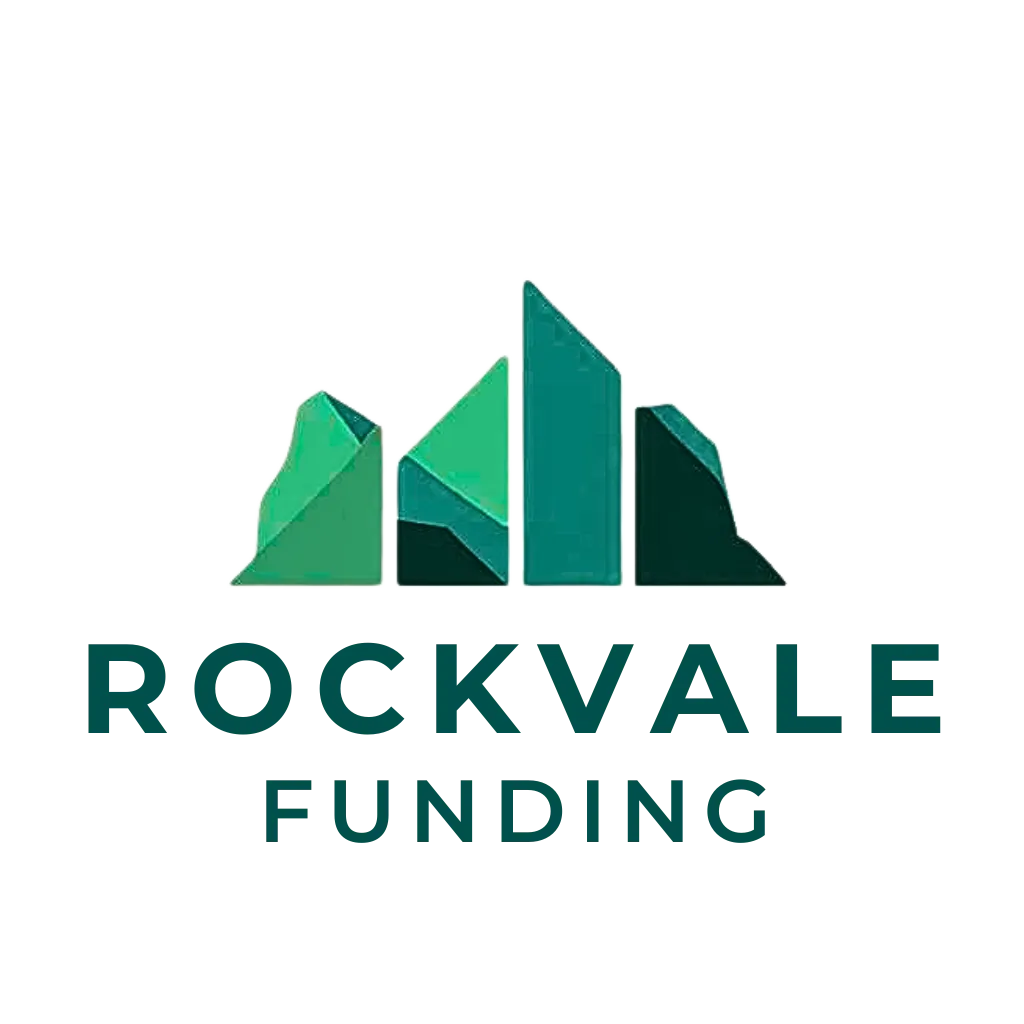SBA Loans
Need Large Loans With Predictabel Payments?
What Are SBA Loans?
SBA (Small Business Administration) loans are government-backed financing programs designed to help small businesses access affordable capital when traditional bank loans aren't available. While SBA loans are issued by approved lenders like banks and credit unions, they're partially guaranteed by the U.S. government, which reduces the lender's risk and allows them to offer better terms to borrowers. This government guarantee means you can get larger loan amounts, lower down payments, longer repayment terms, and more competitive interest rates than conventional business loans. SBA loans are considered the gold standard of small business financing, offering terms that simply aren't available through any other lending source and is considered the most favorable financing possible for small business owners.
Why Choose SBA Loans?
Lowest Interest Rates
SBA loans offer the most competitive rates available, typically 6-11% APR. Rates are 2-4% lower than conventional business loans and significantly lower than alternative financing.
Longer Repayment Terms
Get up to 10 years for working capital and equipment, and up to 25 years for real estate purchases. Longer terms mean lower monthly payments and better cash flow.
Lower Down Payments
Put down as little as 10% compared to 20-30% required by conventional lenders. Preserve your working capital while still accessing the funding you need.
Larger Loan Amounts
Access up to $5 million in financing. The government guarantee allows lenders to approve larger amounts than they would for conventional loans.
Flexible Use of Funds
Use SBA loans for real estate, equipment, working capital, debt refinancing, business acquisitions, expansions, and more. Few restrictions on how you deploy capital.
Build Business Credit
SBA loans report to business credit bureaus, helping you establish a strong credit profile for future financing needs and better terms over time.
Types of SBA Loans
SBA 7(a) Loans - Most Popular Option
The SBA 7(a) program is the most common and versatile SBA loan, accounting for the majority of all SBA lending. These loans can be used for almost any business purpose including working capital, equipment purchases, real estate, refinancing debt, business acquisitions, and expansion projects.
Best for: General business purposes, acquisitions, refinancing, working capital.
SBA 504 Loans - Real Estate & Equipment
SBA 504 loans are specifically designed for purchasing fixed assets like commercial real estate, buildings, and major equipment. These loans use a unique structure involving two lenders: a bank finances 50% of the project, a Certified Development Company (CDC) finances 40%, and you provide 10% down payment.
Best for: Commercial real estate purchases, major equipment, new construction, substantial renovations.
SBA Microloans
Microloans are small SBA loans up to $50,000 provided through nonprofit intermediary lenders. These are ideal for startups, newer businesses, and those needing smaller amounts of capital. The application process is less rigorous than standard SBA loans.
Best for: Startups, working capital, inventory, equipment, furniture and fixtures.
SBA Express Loans
A streamlined version of the 7(a) loan program offering faster approval (typically 36 hours) with slightly less favorable terms. The trade-off is speed for slightly higher rates and lower guarantee percentages.
Best for: Businesses needing faster funding.
SBA Loan Requirements
⚫ Business Type – Must be a for-profit business operating in the United States
⚫ Size Standards – Must meet SBA's definition of a small business (varies by industry, generally under 500 employees or specific revenue thresholds)
⚫ Time in Business – Typically 2+ years in operation (though startups may qualify for certain programs with strong personal credit and experience)
⚫ Credit Score – Minimum 680 personal credit score (640 may be considered); higher scores get better rates
⚫ Revenue – Demonstrated ability to repay the loan through business cash flow; specific minimums vary by loan size
⚫ Equity Injection – 10-20% down payment depending on loan type and purpose
⚫ Collateral – Required for loans over $25,000; lenders take a lien on assets being financed and may require additional collateral
⚫ Personal Guarantee – All owners with 20%+ ownership must personally guarantee the loan
⚫ Use of Funds – Must be for a sound business purpose; cannot be used for speculation, refinancing delinquent debt, or lending to others
⚫ Demonstrated Need – Must show you've been unable to get financing on reasonable terms from other sources

How sba loanS Work
1. Initial Consultation – Discuss your needs and goals with our SBA specialists. We'll determine which SBA program fits your situation best.
2. Document Preparation – Gather required documents: tax returns, financial statements, business plan, personal financial statement, and project details.
3. Lender Selection – We match you with the right SBA preferred lender based on your industry, loan size, and business profile.
4. Application Submission – Submit your complete application package to the lender. Our team helps ensure everything is accurate and complete.
5. Underwriting Review – The lender reviews your application (from 6 weeks to 4 months). SBA preferred lenders can make faster decisions without waiting for SBA approval.
6. Approval & Closing – Once approved, review and sign loan documents. Closing takes 1-2 weeks. Funds are disbursed according to your loan terms.

Best Uses for SBA Loans
🟢 Commercial Real Estate Purchase – Buy the building where your business operates, secure long-term location, build equity instead of paying rent
🟢 Business Acquisition – Purchase an existing business, buy out a partner, or acquire a competitor with favorable terms and low down payments
🟢 Major Equipment Purchases – Finance manufacturing equipment, vehicles, technology systems, or specialized machinery with long repayment terms
🟢 Business Expansion – Open additional locations, expand existing facilities, enter new markets, or grow operations
🟢 Debt Refinancing – Consolidate high-interest business debt into one lower-rate SBA loan to improve cash flow and save money
🟢 Working Capital – Build cash reserves, manage seasonal fluctuations, or fund ongoing operational expenses with long-term, affordable capital
🟢 Construction & Renovation – Build a new facility, complete major renovations, or make substantial improvements to business property
🟢 Franchise Purchase – Buy into an approved franchise system with favorable terms (SBA maintains a list of approved franchises)
🟢 Export Financing – Fund international trade activities, working capital for export orders, or equipment for export production
Call 1-805-819-ROCK (7625) or tap APPLY
FAQs:
1. How long does it take to get an SBA loan?
Standard SBA 7(a) loans typically take 45-90 days from application to funding. SBA preferred lenders can often approve loans in 4-6 weeks. SBA 504 loans take longer (60-120 days) due to the two-lender structure. Express loans can be approved in 36 hours but still require closing time. The key to faster processing is having all documentation ready upfront.
2. What credit score do I need for an SBA loan?
Most SBA lenders require a minimum personal credit score of 680, though some will consider scores as low as 640 with compensating factors like strong revenue or collateral. Scores of 720+ typically qualify for the best rates. The SBA itself doesn't set credit score requirements, but individual lenders do. If your score is below 680, focus on improving it or consider alternative financing while building credit.
3. Can startups get SBA loans?
Yes, but it's challenging. SBA microloans are most accessible for startups. For standard 7(a) loans, startups typically need: strong personal credit (720+), significant industry experience, a solid business plan, substantial owner equity injection (20-30%), and often personal collateral. Franchise buyers may have an easier time if buying an SBA-approved franchise. Most lenders prefer 2+ years in business.
4. What can SBA loans NOT be used for?
SBA loans cannot be used for: speculative investments, refinancing delinquent government debt, paying off delinquent taxes, lending to others, pyramid sales distribution plans, charitable or religious organizations, businesses engaged in illegal activities, non-profit businesses (with some exceptions), or passive real estate holding companies.
5. How much down payment do I need?
Down payments for SBA loans are typically 10-20% depending on the loan type and use of funds. SBA 7(a) loans generally require 10% down for most purposes. SBA 504 loans require 10% down (can be as low as 5% for certain manufacturing or energy-efficient projects, or for businesses owned by veterans, women, or minorities).
6. Are SBA loan rates fixed or variable?
Most SBA 7(a) loans have variable rates tied to the Prime Rate, though some lenders offer fixed-rate options. SBA 504 loans have fixed rates for the CDC portion (typically 40% of the loan), while the bank portion (50%) can be fixed or variable. The fixed rates on 504 loans are a major advantage and typically run 1-2% below market rates for conventional real estate loans.
Get the capital you need to grow your business TODAY!
Speak to a Loan Specialist
Rockvale Funding © 2026 | ALL RIGHTS RESERVED | LOANS SUBJECT TO LENDER APPROVAL
The operator of this website is NOT a lender, does not make offers for loans, and does not broker online loans to lenders or lending partners. Customers who arrive at https://rockvalefunding.com/ are paired with a lender or a lending partner, and redirected only to lenders or lending partners who offer business loan products.
ADA STATEMENT| TERMS & CONDITION |PRIVACY POLICY




